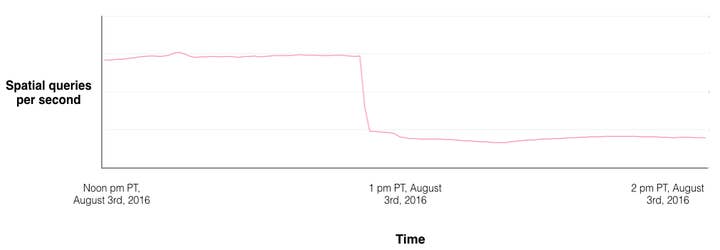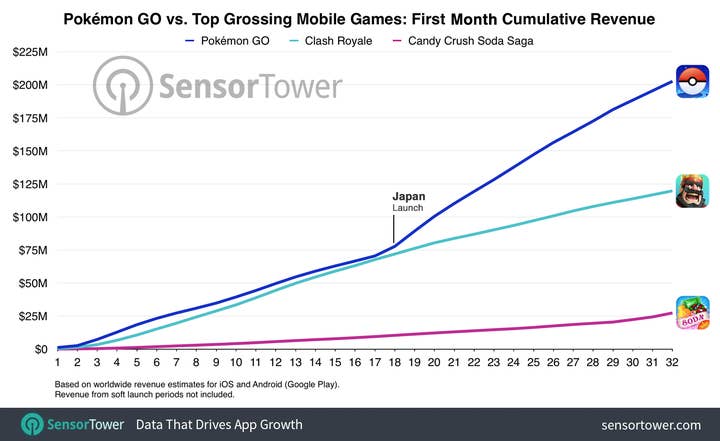Pokémon Go blocks third-party services as global rollout continues
Niantic's game earned a reported $200 million in its first month, giving rise to a cottage industry of external sites
Niantic has been taking steps to control the cottage industry that has grown up around the enormously successful Pokémon Go, blocking third-party websites and apps as it continues its global rollout.
In a post on the Pokémon Go website, Niantic CEO John Hanke explained that the game's launch in Latin America had to be delayed due to "aggressive efforts" to access its servers by third parties.
"Since there has been some public discussion about this, we wanted to shed some more light on why we did this and why these seemingly innocuous sites and apps actually hurt our ability to deliver the game to new and existing players," Hanke said, posting the following chart to illustrate the drain on Niantic's servers.

Hanke also referred to the "opportunity cost" of dealing with third-party sites and apps accessing Pokémon Go. "Developers have to spend time controlling this problem vs. building new features," he continued. "It's worth noting that some of the tools used to access servers to scrape data have also served as platforms for bots and cheating which negatively impact all Trainers.
"There is a range of motives here from blatant commercial ventures to enthusiastic fans, but the negative impact on game resources is the same... We don't expect these attempts to stop. But we do want you to understand why we have taken the steps we have and why we will continue to take steps to maintain the stability and integrity of the game."
"There is a range of motives here from blatant commercial ventures to enthusiastic fans, but the negative impact on game resources is the same"
The fact that "enthusiastic fans" have been affected by Niantic's actions is one of the key aspects of the "public discussion" to which Hanke referred. Just today, VG247 has reported a fansite called PokeAdvisor that is now seemingly defunct for this reason, despite offering useful information and features that are not included in Pokémon Go itself.
Whether Niantic will eventually add these lost features isn't yet clear, but for now it seems to be focusing on making the game available in more countries around the world. At the end of last week, Pokémon Go launched in 15 new markets, almost all of which are in South-East Asia. At the time of writing, the game still wasn't available in China.
When it finally is available in every major market in the world, Niantic may be able to increase its server resources to allow relevant third-party sites to function. In fact, it could be argued that Pokémon Go is earning the kind of money to allow that already, with the latest estimate from Sensor Tower putting its first-month revenue above $200 million.
If accurate, that figure puts Niantic's game far ahead of successful launches like Candy Crush Soda Saga and Clash Royale. Indeed, Pokémon Go has earned seven times more revenue than King's puzzle game did in its first month.










